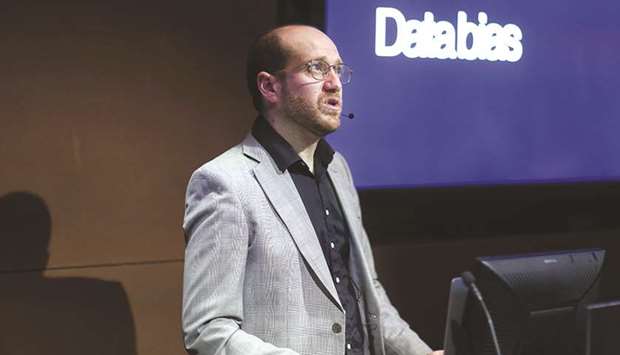Dave Senior, partner and strategist at Toronto-based digital agency Playground Inc, explained the difference between artificial intelligence (AI) and machine learning, and the role each plays in transforming experiences and professions, during a lecture at Northwestern University in Qatar (NU-Q).
Artificial intelligence continues to reshape all aspects of everyday life. From driverless cars and supermarkets with no cashiers to factory automation
and e-learning, the rollout of machine-driven data and automated processes are redefining how the world operates, especially across the media industry.
Senior explained that machine learning is the “acquisition of knowledge or skill by a computer, where the knowledge is provided and fed by an expert”, while AI is where a machine can “apply knowledge and continue to optimise” using algorithms and logic to make decisions and come up with solutions, without an expert.
“The differences between AI and machine learning are fairly stark,” said Senior. “While AI cares about the success of the outcome, machine learning cares about how accurately it represents the data that has been provided. AI performs the work for you and decides what to show you,
machine learning can analyse the data, but does not make decisions on how it is applied.”
As an example, Senior explained how major media entities such as Netflix or Instagram may use AI to personalise experiences and “make recommendations that amplify certain values”. He pointed out that by using AI, these services offer suggestions and recommendations by “continuing to optimise, which helps you break out of your bubble and creates opportunities to explore new content, or highlights other things that might be of interest based on previous activity”.
He added that machine-driven data and AI are also being used by the media corporations to make business decisions such as “deciding how and what content gets produced”, based on the popularity of similar shows or on using headlines that can achieve higher click-through rates.
Thinking about the future of this digital era, Senior noted two main areas of concern for media and communication professionals: data bias and ‘deepfakes’. Because data are entered into the system to provide machine learning with knowledge and AI with guidance to develop algorithms, it is essential that the data are “collected in a way that eliminates bias”.
With ‘deepfakes’, he said, computer scientists and media experts are being challenged when confronted with fake news, images and videos that can be manipulated, adding that it is then “our responsibility to analyse and identify what is real and what is not”.
Senior concluded his talk by encouraging NU-Q students to pursue their passion and be curious and creative “because nothing will replace human creativity”.

Dave Senior
